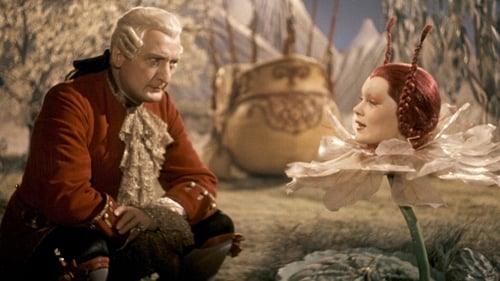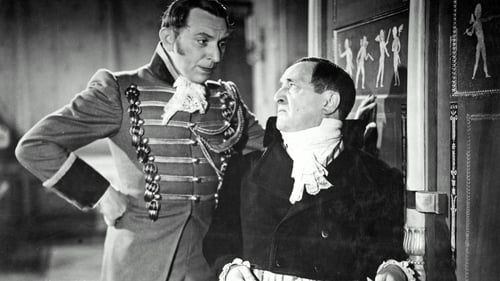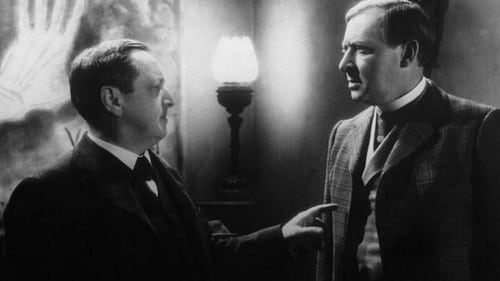
Generaldirektor
1943 German film.

Sultan Abd ul Hamid
Wanting a lavish production to mark the 25th anniversary of UFA, the German film studio, Joseph Goebbels, director of the Nazi propaganda machine, commissioned an adaptation of Baron von Münchhausen‘s “autobiographical” stories. Baron von Münchhausen (1720-97) was an eccentric figure in European history, whose tall tales about his adventures rival anything to be found in the legends of Paul Bunyan or classic figures like Odysseus. This film recounts some of the episodes from the Baron’s sensational stories, which are set in the world of the 18th century.

Kammersänger Möbius

Franz von Suppé
Operetta (German: Operette) is a 1940 musical film directed by Willi Forst and starring Forst, Maria Holst and Dora Komar. The film was made by Wien-Film, a Vienna-based company set up after Austria had been incorporated into Greater Germany following the 1938 Anschluss. It is the first film in director Willi Forst's "Viennese Trilogy" followed by Vienna Blood (1942) and Viennese Girls (1945). The film portrays the life of Franz Jauner (1832–1900), a leading musical figure in the city. It is both an operetta film and a Wiener Film.

Baron Weps

Kammersänger Wolfram Schellenberg

Juranitsch, Stadtpräfekt

Prof. Maxililian Hunsinger
1865. Katharina goes to a ball in Moscow. There she meets again Tchaikowsky, her first and only love. The young, who is now married to wealthy Michael Iwanowitsch Murakin, a man she does not love, has not forgotten Piotr Illich, the (not yet) famous composer. Both are still in love with each other but Piotr is engaged to Nastassia, a dancer, while for her part Katharina cannot leave her husband. Tchaikowky's first love then decides to sacrifice her happiness to the success of the composer, sponsoring him in secret. Something Piotr will learn only years after. When Katharina finds herself free at last it is too late: Tchaikowsky is dying of cholera and she only has time to close his eyes.

Generaldirektor

Professor Lange
Four graduates of an industrial design school team up and form a small business. The protagonist is so excited by the venture that she turns down the proposal of her dashing instructor. Time passes and her three partners lose interest in the business for different reasons. This leaves the heroine who has a change of heart and decides to forgo the business and marry the instructor after all.

Rohrmoser
In 1885, famous New York Metropolitan Opera singer Maddalena dall' Orto is scheduled to perform at a festival in the German residence of Ilmingen. It soon becomes obvious that she is non other than Magda von Schwartze, who left the town eight years ago against her father's wishes to become a singer.

Barranco

Statthalter Nasoni

Mr.Wurl
The happiest one should be selected from 500 married couples to move a marriage-hostile American millionnaire's daughter to the marriage. - Shallow and turbulent love banter with some tumultuous and funny climaxes.

Adrian Fabius - Rittergutsbesitzer auf Taus

Leopold Weinzierl
A working class young woman disregards the wishes of her father to stay in her place, and marries higher in society by wooing a wealthy car manufacturer.

Holub, Oberbuchhalter

Marschner - Wiener Verleger
Gusti Aigner and Franz Lenhardt are in love, but composer Lenhardt is too shy and bashful to go out and sell his compositions to music publishers. Gusti takes the burden on herself; and while there are complications and humorous situations she runs into.

August Sommerbauer
Confusion comedy with musical interludes around a carnival ball, to dare the pretty shop assistant for a fashion store with one of the best gowns of her salon and posing in her embarrassment as the wife of a guest. - Harmlessly entertaining comedy, a little bit too poorly to bring to bear the first-time meeting of three most popular Austrian comic specialists Moser-Slezak-Romanowsky at that time appropriately.

Josef von Randau

Sir John Falstaff

Graf de Latour
La Marquise de Pompadour desires the best tenor in France for her opera company, and after an extensive search in the provinces, Chapelou is selected and forced to leave his bride-of-an-hour to go to Paris. Alfer seeing the handsome tenor, the Marquise decides not to let his bride, Madeliane, join him in Paris. Graf de Latour, banished from the court for his bawdy song about La Pompadour, goes to the town where Chapelou has left his bride and sees an opportunity to get even. He takes Madeleine in hand and after exhaustive grooming and make-over he returns to court with her as his banishment has been lifted, and Chepelou, failing to recognize hie own wife, falls in love with her.

Janos Török

Direktor Saran
Knox owns half of the Circus Saran and acts as a clown there. He hides his circus life from his daughter and is very embarrassed when his daughter finds out his true profession. Hans Moser, who plays Knox, performs poorly, because the character he plays is simply not funny. Leo Slezak, who owns the other half of the circus, as well as Pat and Patachon perform better. The only really good thing about this film is its music, composed by Robert Stolz; especially the song "Ein bisschen Sing-Sang und gute Kameradschaft" , which can be heard throughout the movie.

Publisher Haslinger
Vienna, Austria, late 1870s. After suffering an irreparable misfortune, the Austrian composer Johann Strauss Jr. (1825-99), the Waltz King, falls in love with a ballet dancer, which disappoints the famous operetta singer Marie Geistinger…

Melchior

Barbanelle, ein Schankwirt

Adalbert v. Waldenau
A Hungarian squire and his son compete for the favour of an operetta diva; the younger makes the running. - Unplausible mistakes, small intrigues and a lot of love in an old-fashioned musical comedy with proven comedians.

Koppler, Inhaber einer Konzertagentur

Otto Bachmeier
A singer tired of the stage retreats to a hotel in the country. There, she finds love and a way back into show business.

Dr. Oelschläger, Landarzt

Kreindl, ein Kutscher

Ferdinand Raimund

Ramiro, Gastwirt 'Zum stolzen Torero'

Friedrich Hagedorn, Kapellmeister

Gottfried Bumm
A Bavarian comedy centered around Gusti, the lovely waitress of the restaurant „Bratwurstglockl“, who is adored by all the men. When the spoiled snob Carl Maria complains to the manager about the restaurant, Gusti is summarily dismissed and accepts the invitation of the poor chamber singer Gottlieb Bumm to accompany him on a three-day trip to the Zugspitze he won in a contests. While there, they both live well above their means and Gusti runs into Carl Maria again.

Alois Jeremias Schopf
A journalist travelling by train to Vienna meets an American millionairess travelling incognito. They become friends and decide it'd be fun to swap places for awhile.

Fürst Nikolai
Film by Thiele.

Rübsam - Kammersänger

Dan Douglas is a typical Scottish. When his niece Evelyne marries engineer Fred Keller aboard the ship to Scotland, he gives her a pearl necklace as dowry, but it's false. The newlyweds face their differences when the necklace gets lost.

Theo Müller
A series of stupid coincidences causes the young Munich painter Paul to convert his uncle's castle into a hotel for four weeks. But he can't complain: business is good and he has plenty of guests. For exmple, there's Theo Muller with his revue troupe. For reasons of "sound", Muller calls himself "Miller", which, of course, causes more confusion. His daughter, the beautiful Evelyn, is confused with Mabel Miller, who has come to the hotel on a mission for her filthy rich father ... namely, to estimate the worth of the castle.

Iwan Milhailow
Diplomat Fürst Windischberg is known for spending too much time with women, receiving frequent reprimands and even a threat to be sent to Afrika. In Berlin he meets chorus girl Hella, who tells her companions she is his current flirt.

Exposed to bad influences since childhood, Mary, a young girl is pushed by her mother to approach an elderly banker by the name of Harber. After almost driving her fiancee to suicide and seducing his mentally-ill son, she realizes through a metaphorical dream the scope of her negligence. Sentenced to prison for incitement to murder Harber, she sees herself as a parallel figure to Lea, Lot's wife in Sodom, where the Angel of the Lord warns the sinful citizens of the city of their impending doom. Lea oppresses the angel and eventually turns it over to the pagan priests when her sexual advances to it are rejected. In another dream sequence, Mary becomes the Queen of Syria, whose oppressed people turn against her and who, in turn, condemns a young man who loves her to death. Finally, her dream returns to the present time and when she awakens, she runs back to her former lover.



















